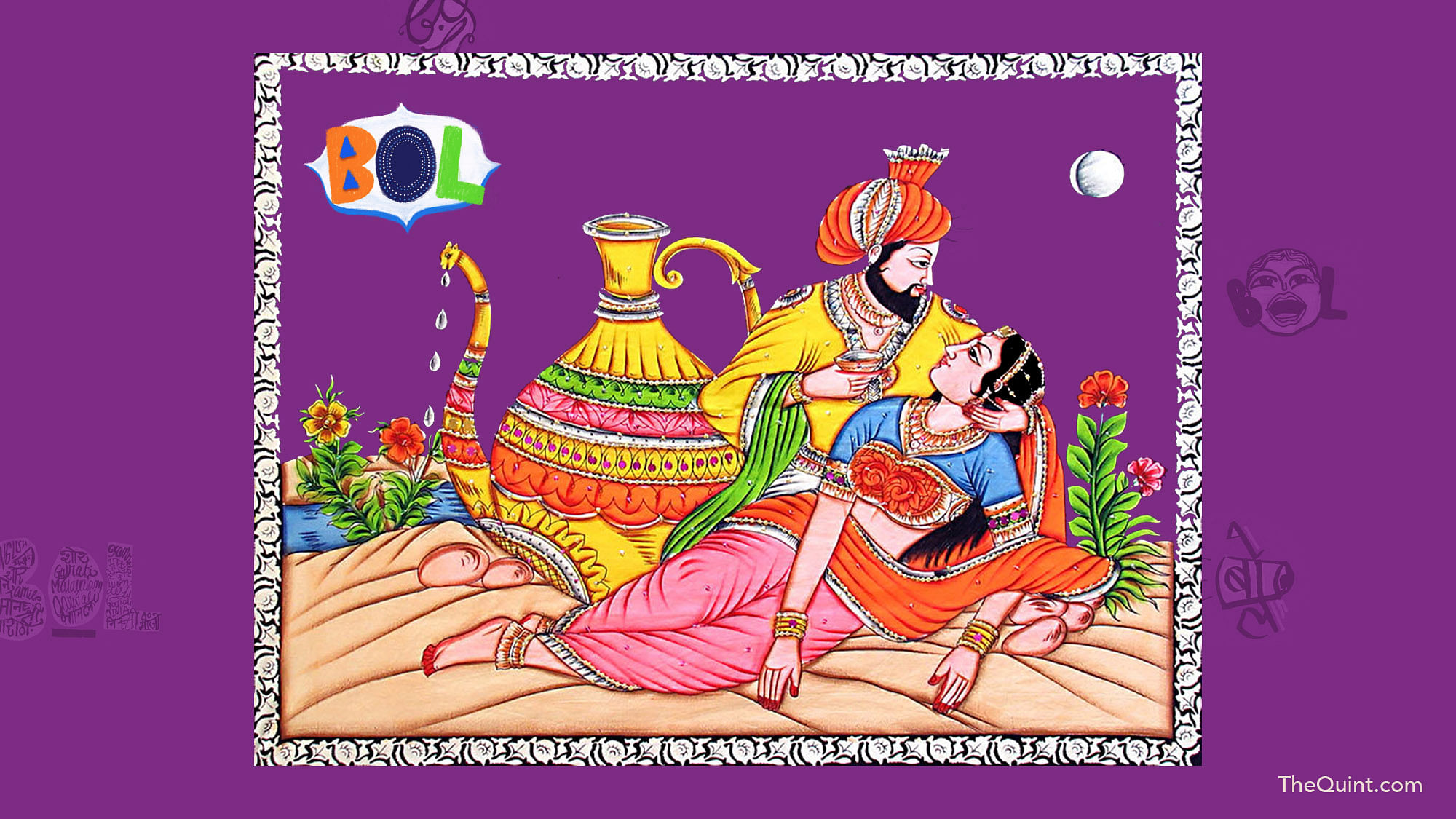He Speaks for Her: Rekhti, or the Bol of Sexuality
Rekhti: A genre of Hindustani poetry where men speak as women and discuss female sexuality & other taboo subjects.

Though many verses were written to the beloved, there was never an attempt to understand her feelings. Why was she haughty and indifferent? Did she prefer someone else? What was her daily routine?
Sadat Yaar Khan, the 18th century poet from Lucknow who wrote under the takhallus or penname, Rangin, explored the feelings of the beloved. He named the genre Rekhti – as opposed to Rekhta, the name that was then given to Urdu ghazals about the inaccessible beloved.
Rekhti gave full-throated expression to the sexual longing and desires of women. Here was a woman who was not afraid to speak out. Of course, one mustn’t forget that it was written by men, who often read it in mushairas dressed as women, and were its main consumers.
Since it was considered voyeuristic and aimed at titillation, this genre was said to be disreputable and not to be repeated in front of well-brought up ladies, or in genteel gatherings, so as to not corrupt the gentler sex.
The feminine voices had not been heard in this form before; the critics were outraged.
Carla Petievich writes, in Feminine and Cultural Syncreticism of Dakani Poetry, that Qutub Quli Khan (1566-1611) and Ghavasi (17th century) of Dakkan did indeed write in the feminine voice. Qutub Quli Khan is a very respected Urdu poet and said to be a pioneer of Urdu ghazals. The female voice in their ghazals was really feminine, soft and gentle. It talked of separation or union but in genteel tones. Not like the full-bodied longings and conversations that the Lucknow-Delhi Rekhti explored.
For example Qutub Quli khan writes:
Compare this to the erotic verse in Rekhti from Mohsin Khan Mohsin:
This genre is invaluable as it describes the clothes, mannerisms and phrases used by women. It also explores love between the women themselves as well as adulterous relationships. These were things that were known but were brushed under the carpet.
In a song from the 1983 movie Mandi , there’s a song by Insha, another famous Rekhti poet:
Chubhti hai yeh to mukhko yeh nigodi bhaari angiya (This wretched bodice is too heavy, it pricks me)
This song describes many other items of clothes worn by women in those days.
According to Prof CM Naim, barring a few women poets such as a woman named Naubahar with a takhallus ‘Zalil’ [shameless], or a temporary or mamtua wife of Nawab Wajid Ali Shah, none of the other female poets wrote Rekhti.
Naubahar Zalil was a maidservant employed by Mirza Sulaiman Shikoh, a Mughal prince living in exile in Lucknow. Mirza Sulaiman Shikoh was also Rangin’s patron and may have, thus, influenced Naubahar Zalil’s style of writing.
The famous Rekhti poets are of course Sadat Yaar Khan Rangin, Inshallah Khan Insha, Mohsin Khan Mohsin and Meer Yaar Ali Jan.
Sajid Sajni (1922-1993) revived this genre and was the last famous Rekhti poet. His famous couplet is often attributed to Meena Kumari:
(Rana Safvi is the founder and moderator of the popular #shair platform on Twitter, which is credited for reviving popular interest in Urdu poetry. This article was sent to The Quint by the author and historian for our Independence Day campaign, BOL – Love your Bhasha – to celebrate the mother tongue. Would you like to contribute? Here's your chance! Sing, write, perform, spew poetry – whatever you like – in your mother tongue. Send us your BOL at bol@thequint.com or WhatsApp it to 9910181818.)
(At The Quint, we are answerable only to our audience. Play an active role in shaping our journalism by becoming a member. Because the truth is worth it.)